- Home
- Fergus Hume
The Millionaire Mystery Page 8
The Millionaire Mystery Read online
Page 8
‘Humph! We’ll see what the police say. You have no objection, I suppose, to come with me to Heathton and repeat this story?’
‘Having a clear conscience,’ said Cicero, with a superior smile, ‘I can safely say that I have not. But the fifty, Mr Thorold?’
‘Will be paid after you have told Blair this story.’
‘If you are so poor,’ put in Mrs Warrender, ‘where did you get money to buy that writing-paper? It was costly paper.’
‘It was,’ admitted Mr Gramp with pride—‘it was, Clara Maria. I always do things in style. If you remember, I got a prize at school for letter-writing.’
‘Where did you get the money?’
‘From a nautical man called Joe Brill—a sovereign.’
‘A sovereign from Joe Brill?’ cried Alan, starting. ‘Why?’
‘Ah! you may ask,’ said Cicero. ‘In my opinion it was hush-money.’
‘Hush-money! What do you mean, man?’
‘Mean! I mean that I believe Joe Brill was the short man I saw that night. Yes, Mr Thorold, Joe stole the corpse, and Joe killed foully, with a knife, my respected brother-in-law. Hinc illae lachrymae!’
CHAPTER IX
INVESTIGATION
WHILST Alan Thorold was dealing with Cicero and his sister in London, Inspector Blair was co-operating with the Rector in obtaining evidence relating to the murder. The inspector was a dry, dour, silent man, born in England, but of Scotch descent. He was cautious to a fault, and never expressed an opinion without having well considered what he was going to say. It was now a common sight in Heathton for his long, lean figure and the Rector’s short, plump one to be seen constantly together.
He was now in the Rectory dining-room with a good glass of port beside him, and Mr Phelps, standing on the hearth-rug, was supplying him with all the details he had collected in connection with the mystery. The case was getting so much more interesting than Blair, the sad and silent, had expected that he was becoming, for him, quite vivacious. He asked the Rector one question after another.
‘Mr Thorold has gone to Dixon’s Rents, sir?’
‘Yes, Mr Inspector; I expect he’ll have some news for us when he returns tonight.’
‘He seems a clever young gentleman,’ Blair said musingly. ‘I dare say he will bring this man Gramp with him.’
‘Do you think that Gramp can point out the guilty person?’
‘That, sir, I am not prepared to say offhand. If convenient, I should like to take a look round.’
‘Certainly. Where shall we go, Mr Inspector?’ and Mr Phelps rose briskly.
‘To the vault, if you please, sir. Afterwards we will call on Mrs Marry.’
The Rector paused at the door.
‘I told you all Mrs Marry had to say about Brown.’
‘Quite so, sir. But I wish to have a look at the rooms occupied by the man. Also, I think it would be as well to examine his luggage.’
‘Can you do that without a warrant?’
‘I’ll take the risk,’ said Blair coolly. ‘An examination may not be quite legal under the circumstances, but as Brown undoubtedly procured the key of the vault by that forged letter, I am entitled to look upon him as a suspicious character. Should he come back, sir—of which I have my doubts—I can account for my action.’
‘Humph! I think you are right. Come, then, and look at the vault.’
To the vault they went, and found Jarks showing the outside of it to a crowd of morbid sightseers. Indeed, the tragedy had drawn people from far and near to Heathton, and the usually quiet place buzzed like a hive. Mrs Timber was making her fortune, and blessed the day she had turned Cicero the tramp out of her house. To him alone did Mrs Timber ascribe the theft of the body. As to his connection with the murder of Dr Warrender, she was not so certain.
‘Come, come!’ cried Mr Phelps, in his fussy manner, on finding Jarks haranguing the crowd. ‘This is most ridiculous—most out of place. Jarks, I am astonished at your desecrating the graveyard in this way.’
‘No desecration, reverend sir,’ said Jarks, in his rusty voice, ‘I wos only showing ’em where I laid Muster Marlow by, comfortable. Go—’
‘Go away—go away, all of you!’
‘Come on to the right!’ shouted Jarks. ‘I’ll show ’ee where a soocide as they brought in crazy is tucked away. A lovely grave with a good view, an’ as nice a stone as I iver seed. In my young days he’d have been buried in cross-roads with a stake, but they do trate ’em kindly nowadays. Ah yis. This way to the soocide, neighbours!’ And Jarks headed the crowd to the other side of the graveyard. The keen, cold eye of Inspector Blair cleared them out more quickly than Jarks’ invitation.
‘Dear me! most indiscreet of Jarks!’ said the Rector, opening the door of the vault. ‘Come in, Mr Inspector. Here’s a candle. Tut, tut! I’ve burnt my fingers. Deuce take—Hum—God forgive me for bad language! This is the niche, Mr Inspector; yonder the coffin—a very handsome one. The lead is cut, you perceive. Ah, poor soul! And we meant it to last till the Great Day.’
While the Rector ran on in this fashion, Blair the silent examined the empty coffin. He noted that the lead casing had been cut with a sharp instrument, and very neatly done—so neatly that the inspector became thoughtful.
‘That wasn’t done by a man in a hurry,’ he mused. But he said nothing, and merely turned to Mr Phelps with a question: ‘Who screwed down the coffin?’
‘Who?—bless me, let me think! Yes, yes. Dr Warrender—poor soul!—and Joe Brill. Faithful fellow, Joe! Would see the last of his master.’
‘Wasn’t the undertaker present?’
‘Crank? Well, yes, he was. But I am sorry to say, Mr Inspector’—here the face of the Rector became severe—‘that on that day Crank was intoxicated.’
‘H’m! Who made him drunk?’
‘Himself, I suppose,’ rejoined Mr Phelps, a trifle tartly. ‘Crank requires no one to tempt him.’
‘Few men do, sir,’ said Blair, and again examined the coffin. He passed his long, delicate hand over every inch of it, particularly fingering the lid; then he looked round the niche where it rested, peered into the others, and considered well all that he saw, while Mr Phelps chattered. ‘Quite so,’ said the detective at length; ‘let us go outside.’
He examined the graveyard as carefully as he had done the vault. In the angle formed by the Lady Chapel he found the long grass crushed down, and part of it torn up to make a pillow.
‘Humph! a squatting-place,’ said Blair, who had read a good deal about prehistoric man. ‘A tramp has been sleeping here.’
‘A tramp!’ repeated the Rector. ‘Of course that was Cicero Gramp, who wrote the letter.’
‘No doubt. I dare say he saw the whole business.’ Blair continued his researches, and came to a halt at the wall which divided churchyard from pine-wood. He pointed to a loose stone which had been knocked off. ‘Did you observe this before, sir?’
‘No,’ replied Mr Phelps, raising his pince-nez. ‘But that’s nothing. You see, the wall has been put together without mortar—simply stones piled one on top of the other. A high wind, now—’
‘I don’t think a high wind knocked this stone off. You will notice, sir, that it has fallen on the other side. Excuse me,’ and Blair, active as a deer, leaped over the wall and disappeared into the pine-belt. Phelps rubbed his nose, not understanding these Red Indian methods. In ten minutes the inspector returned. ‘I can’t find the trail,’ said he, ‘but from the evidence of that wall, I suspect the body was carried over it.’
‘Where to, Mr Inspector?’
‘Probably to a cart waiting on the highroad, which runs across the moor. But, of course, I’m in the dark as to that. Let me see the keyhole of the vault-door.’ He went back and had a good look at it. There were no scratches to be seen. ‘Humph!’ said the inspector; ‘this was opened quietly enough, and by a man who knew what he was about. There was no hurry or fumbling in putting in the key.’
‘Ah!’ said the Rector, looking
wise. ‘What key? Not this one?’
‘No, Mr Phelps, I don’t suspect you. Probably the key was that stolen from Mr Thorold’s desk by the Quiet Gentleman.’
‘You speak as though you were not quite sure.’
‘There might have been a third key,’ Blair said cautiously.
‘If so, why should Brown have stolen Thorold’s key?’
‘That’s one of the things I have to find out. Let us call on Mrs Marry.’
Mrs Marry was a voluble, buxom woman with rosy cheeks, and a great amount of curiosity as to matters which did not concern her. But, clever as she was, it seemed that she had nothing to tell about Mr Brown. With many curtsies and much talk she conducted Rector and inspector into a gimcrack parlour full of gaudy furniture, Berlin wool mats, antimacassars, and wax flowers.
‘When Jeremiah died,’ explained the widow with pride, ‘I spent the nest-egg he left me on that elegant set of chairs and sofa, also on the curtains, table, and glass lustres, which are considered very fine. It was my intent, gentlemen, as a lone widder, to take in single gentlemen, and they likes something to tickle the eye.’
‘A most inviting room, Mrs Marry,’ said the Rector, perching himself carefully on a fragile chair, all varnish and design, but entirely wanting in solidity; ‘but Mr Brown—’
‘Ah, sir, he’s gone where we must all go;’ and Mrs Marry wiped away an imaginary tear.
But her remark called forth a question from Blair, who had been making a close examination of the room:
‘How do you know he is dead?’
‘Bless the man! wouldn’t he be back if he wasn’t? I’m sure he was comfortable enough, and my cooking is above blame, thank Heaven! If anyone—’
‘Mr Brown went out at nine o’clock?’ said Blair, cutting her short.
‘I won’t deceive you, Mr Policeman, he did. He stayed in most of the day, and went out in the afternoon. At six he came back for his bite and sup, and at nine he went out again to take the air. He said so, at least, and I ain’t set eyes on him since.’
‘He said so?’ remarked Mr Phelps.
‘On his fingers, of course. He was dumb, sir, but not deaf, and he conversed on his fingers wonderful. I can talk myself that way,’ said Mrs Marry gravely, ‘having a niece as is deaf and dumb in an asylum. I expect it was my knowing the language as brought Mr Brown here to lodge.’
‘Where did he come from?’
‘London town, he gave me to understand, sir. But he didn’t talk much—on his fingers—about himself. He was very quiet, ate and drank, read books—’
‘What kind of books?’
‘Novels, sir—yellow novels, in a foreign tongue. Here, sir, is the rosewood bookcase. He also wrote a great deal, but what I don’t know. I thought he had ideas of becoming a writing person himself.’
Blair opened the bookcase, and one by one examined a dozen or so French novels ranged on the lower shelf. They were all by good authors, the usual paper-covered cheap editions—nothing strange about them. No name was written in any one of them. He shut up the bookcase with a look of disappointment.
‘Was your lodger a Frenchman?’ he asked.
‘Lor’, sir, I dunno! He talked English with his fingers. I’ve seen him reading the newspapers.’
‘He did not look like a foreigner,’ remarked the Rector.
‘Ah! I quite forgot you knew the man, Mr Phelps. Can you describe his looks?’
‘He was not very tall, had long white hair and a beard, ruddy cheeks, and dark eyes. He was usually dressed in a grey suit, and walked with a stout stick.’
‘Gout in his feet,’ put in Mrs Marry, not at all pleased at being left out in the cold. ‘He wore cloth boots for his gout—walked very badly, did Mr Brown.’
‘Strange!’ murmured Blair, again looking round the room. ‘How could an old man helpless through gout in the feet carry off a dead body? Humph!’
‘He carried off no dead body!’ cried Mrs Marry, crimson with wrath, ‘if it’s Mr Marlow’s corpse you’re talking of. I believe Mr Brown’s bin murdered like the doctor.’
‘Why do you believe so?’
‘Because I’ve made up my mind to believe it,’ said Mrs Marry fiercely. ‘And I’d like to see the man as would change my mind.’
‘So should I,’ remarked Blair. ‘Well, Mrs Marry, show me Mr Brown’s room. I must examine his luggage.’
‘There’s only one box, and that’s locked.’
‘I’ll take the liberty of opening it.’
‘But you can’t. I’m an honest woman. What’ll Mr Brown say when he comes back and finds his things gone? Besides, there’s a trifle of rent, and—’
‘Hold your tongue!’ said the inspector, with a glance which quelled her. ‘I will take nothing away. You forget who I am, Mrs Marry. Show me the bedroom.’ And the landlady, thinking better of it, obeyed without further argument.
The box was there—a common, brown-painted travelling-box. There was no name on it, and it proved to be locked. The inspector asked for a chisel, and forced it open. Within he found three suits of grey clothes, some linen and socks, together with a pair of cloth boots—nothing else. No name on the shirts, no tailor’s tag on the clothes. Evidently nothing of Mr Brown’s identity was to be learned from his belongings.
‘The man from nowhere,’ said Phelps, gazing blankly around him.
But Inspector Blair was not yet satisfied. He searched both sitting-room and bedroom, questioned Mrs Marry, looked at some torn pieces of paper in the fireplace, and—found nothing. Rector and inspector walked out of the cottage as wise as when they had entered it. So far their search had been a failure.
All that afternoon Blair hunted the village for evidence. He heard how Warrender had called at Mrs Marry’s house, how he had left there to follow the Quiet Gentleman, who had been seen by the peasant going in the direction of the moor. Blair recalled the loose stone dropped from the churchyard wall, and his own theory that the corpse had been taken to a cart on the road. He sent out the police, and had the heath searched, even to the hut where the corpse had been, but all with no result. And as yet he was ignorant of what Cicero knew.
Tired and baffled, he returned to Heathton to the inn. Here he found a messenger from Mr Phelps, asking him to call at the Rectory. He hurried there, and was met by Alan Thorold, who presented Cicero and Mrs Warrender. Then the tramp told the story of all that he had seen. Blair rubbed his chin.
‘Can the doctor have helped Brown to do it?’ he said half aloud.
‘No, he did not!’ cried Mrs Warrender angrily. ‘My husband was as good a man as ever lived. Why should he steal a corpse?’
‘Humph! Why indeed!’
Blair recollected something he had seen in the vault of which he cared not to speak until he could be more certain. So he held his peace.
‘Even if the late lamented Dr Warrender did violate the sanctity of the tomb,’ said Cicero softly, ‘who killed the late lamented Dr Warrender?’
‘Perhaps the shorter man who helped him,’ said the Rector.
‘That was—’
‘Hold your tongue just now,’ whispered Alan, for Cicero was about to mention Joe Brill’s name; ‘we’ll come to that later. Who’s that?’
It proved to be Mrs Marry, who came in with part of a torn envelope in her hand. On the envelope was an obliterated stamp, but the writing had been torn off.
‘I found this in Mr Brown’s room,’ she said, ‘on the floor by the edge of the carpet. How it escaped my dusting I don’t know.’
Blair looked at this piece of evidence.
‘Jamaica stamp,’ he said.
‘Strange!’ cried the Rector. ‘I know Marlow was at one time in Jamaica.’
‘And my husband, Dr Warrender, came from Jamaica,’ said the widow.
There was silence. They looked at one another. But no one had any explanation to offer.
CHAPTER X
ANOTHER DISAPPEARANCE
IN the course of his investigations Mr Blair had exam
ined the servants at the Moat House. From the footman he heard of the West Indian letter, and of the effect it had produced upon Mr Marlow. Search had been made for that letter as likely to throw some light on the mystery, but without success. Evidently Mr Marlow had thought it important enough to destroy. His secret, whatever it might have been, had gone to the grave with him. It was a strange coincidence that the man Brown should also have a correspondent in Jamaica. He it was who had stolen the key of the vault from Alan’s desk. Again, Dr Warrender—who, as his wife told Alan, had been in Jamaica—had been murdered. Between these three men, then—Marlow, Brown and Warrender—there was evidently some connecting-link. Had there not been, Warrender would not have assisted to remove the body of the millionaire, and Brown, by stealing the key, would not have helped him.
‘There is no doubt in my mind that Brown was the short man seen by Gramp,’ Blair said to Alan. ‘And he was followed from Mrs Marry’s by Dr Warrender, who was bound on the same errand.’
‘You mean the theft of the body?’
‘I think so. Brown had the key and Gramp saw them remove the corpse.’
‘He saw Warrender,’ corrected Alan, ‘not Brown.’
‘I judge the other was Brown, from the theft of the key and the fact that Warrender called to see him, and then followed. Again, both men have disappeared—at least, one has. The other is dead.’
‘And who murdered him?’
‘Brown,’ said the inspector, with conviction. ‘I am sure of it.’
‘How can you be sure?’
‘Because something unforeseen happened—the murder, probably. In the ordinary course of things, I take it, Brown would have come back to fetch his luggage, and would have gone away in a manner less likely to arouse suspicion. Probably he and Warrender had a quarrel when they put the corpse in the cart. Brown killed the doctor, and then drove away.’
‘But, Blair,’ argued Alan, ‘you forget that the doctor’s body was seen in the hut. Even if Brown had dragged it there—which, I admit, he might have done—I don’t see how he could have brought it back again to the vault.’
‘I do, Mr Thorold. It was Brown who had the key. Most likely he put the dead body in a place of safety, then came back the following night, to hide it away in the safest place he knew of—to wit, the vault. If you recollect, no alarm as to the loss of Marlow’s body was given, or was likely to be given. Warrender’s dead body would not have been searched for in the vault. It is, at least, highly improbable that the vault would have been opened.’

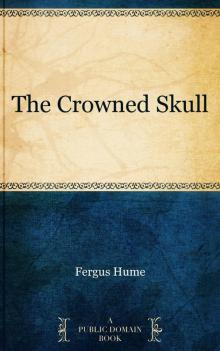 The Crowned Skull
The Crowned Skull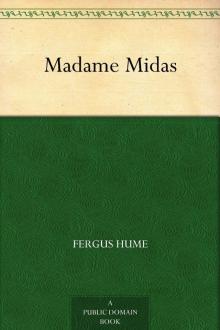 Madame Midas
Madame Midas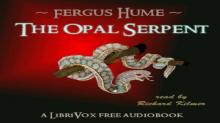 The Opal Serpent
The Opal Serpent The Solitary Farm
The Solitary Farm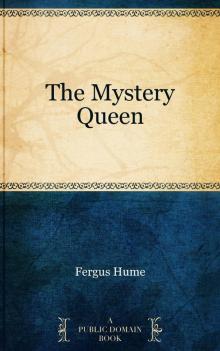 The Mystery Queen
The Mystery Queen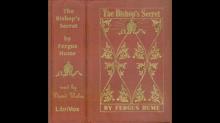 The Bishop's Secret
The Bishop's Secret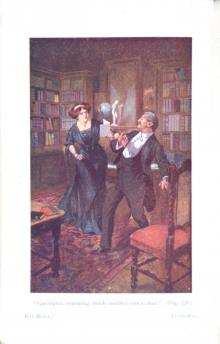 Red Money
Red Money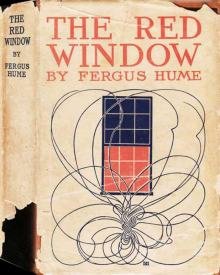 The Red Window
The Red Window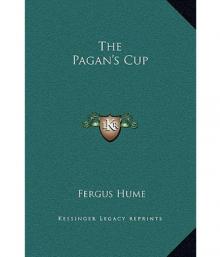 The Pagan's Cup
The Pagan's Cup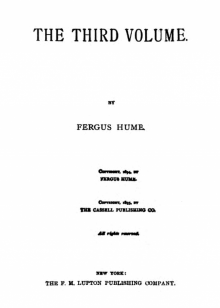 The Third Volume
The Third Volume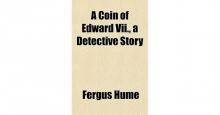 A Coin of Edward VII: A Detective Story
A Coin of Edward VII: A Detective Story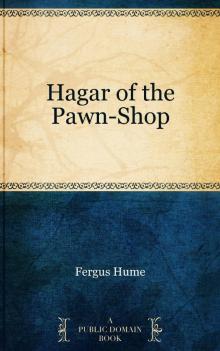 Hagar of the Pawn-Shop
Hagar of the Pawn-Shop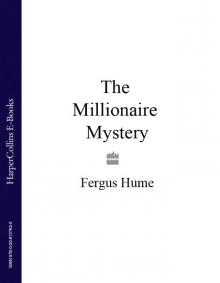 The Millionaire Mystery
The Millionaire Mystery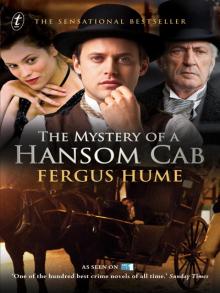 The Mystery of a Hansom Cab
The Mystery of a Hansom Cab